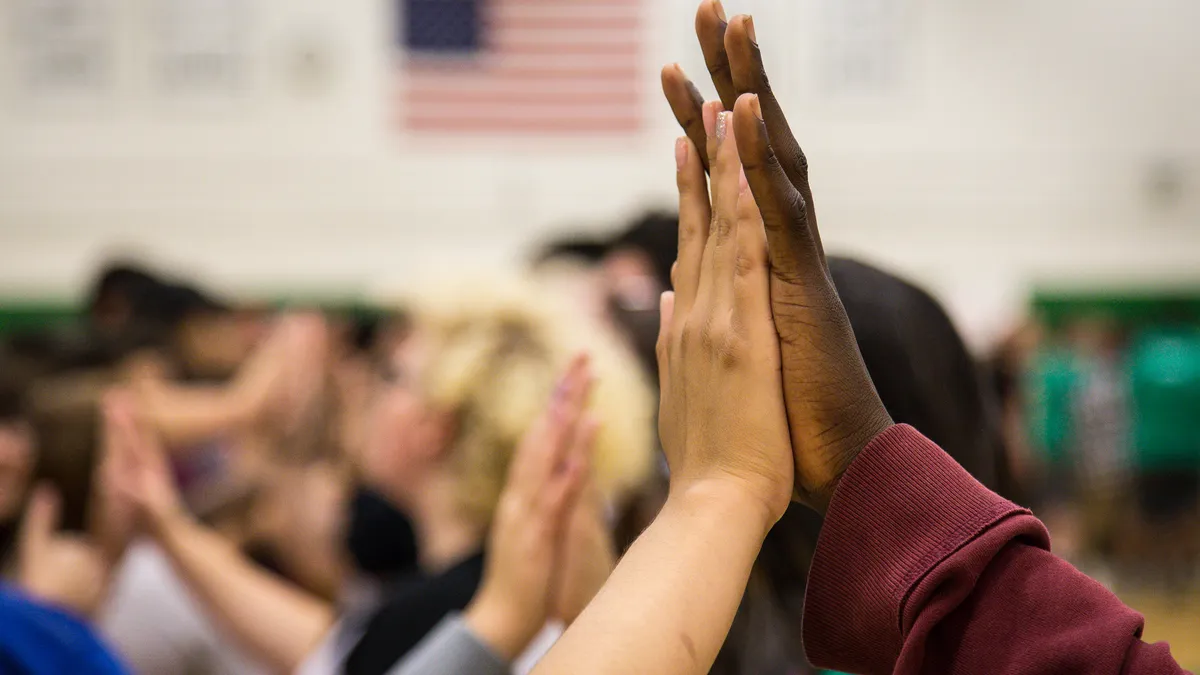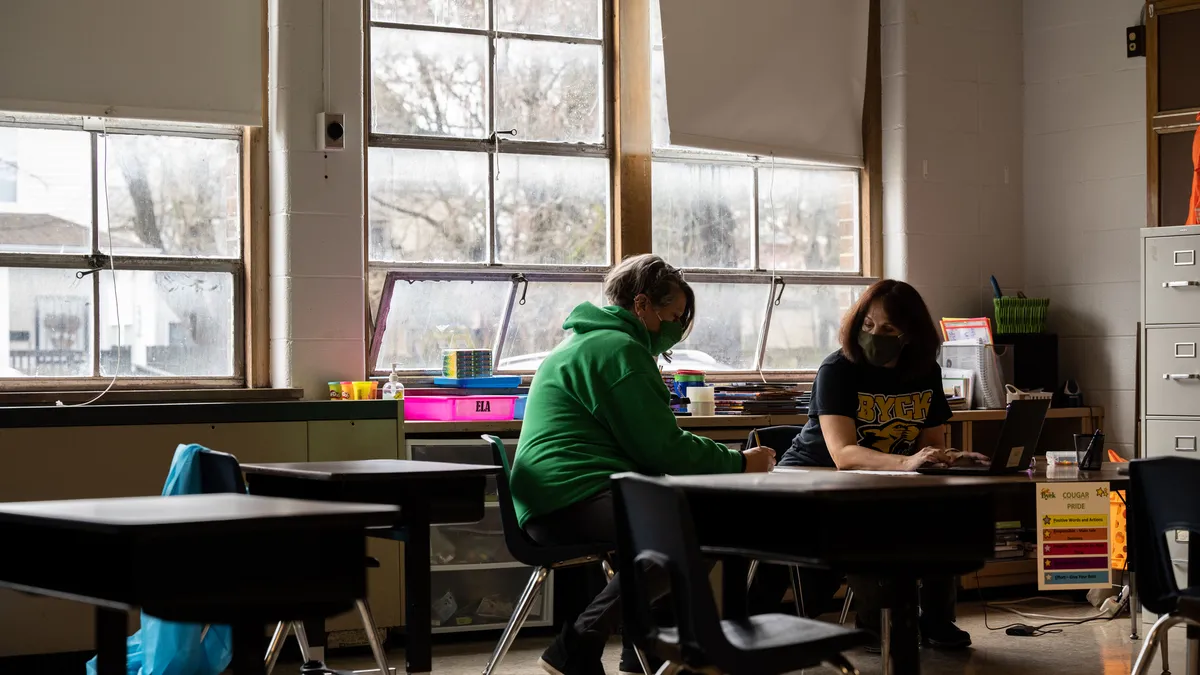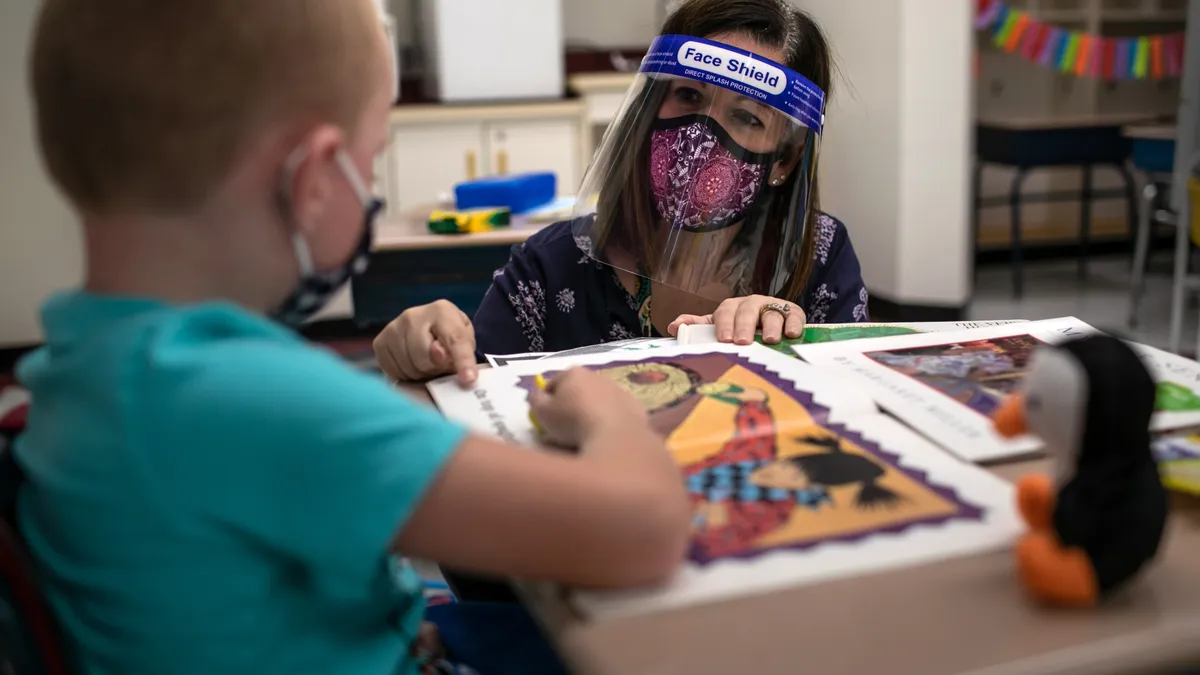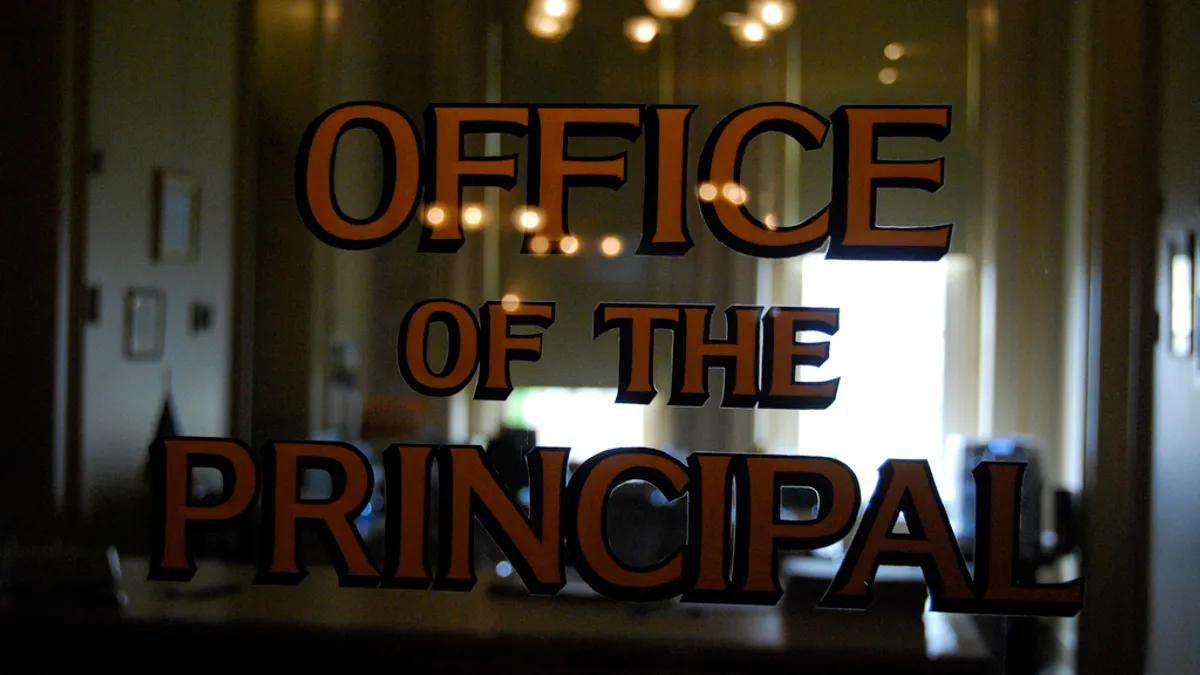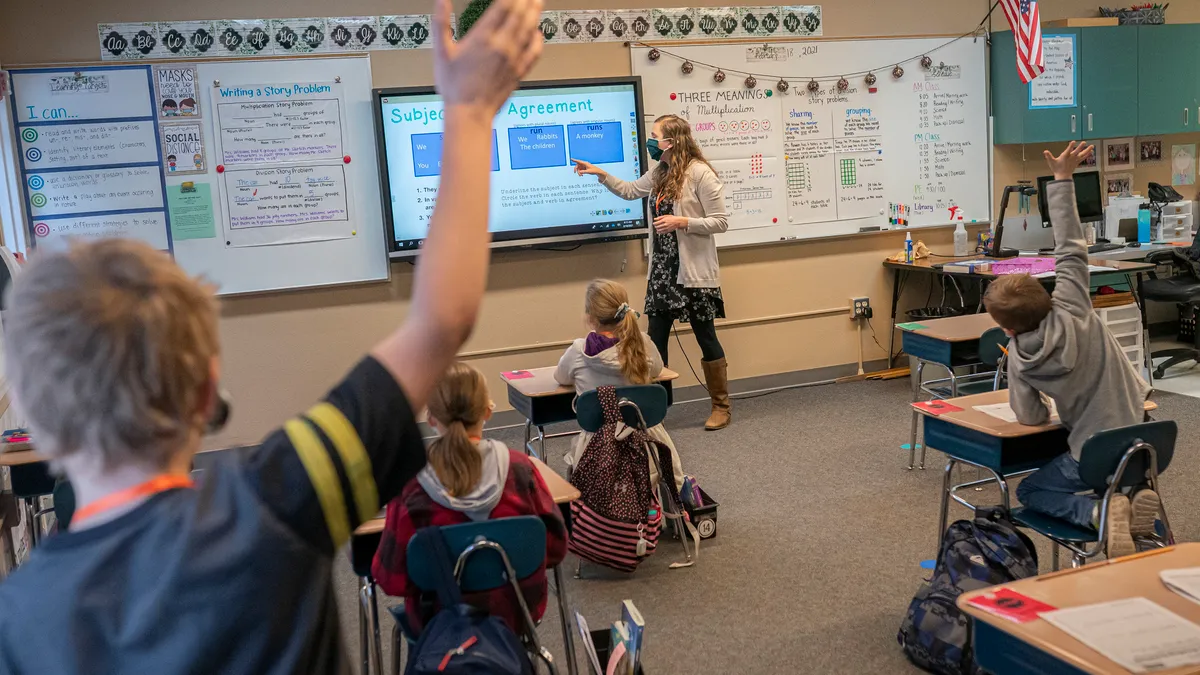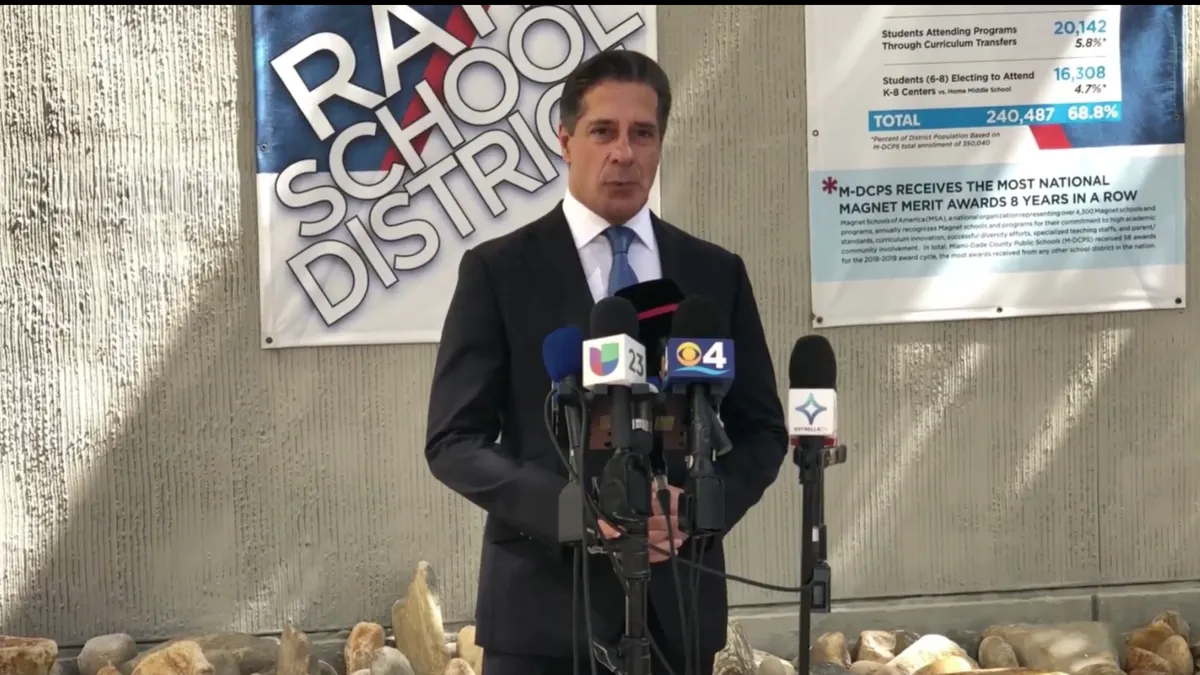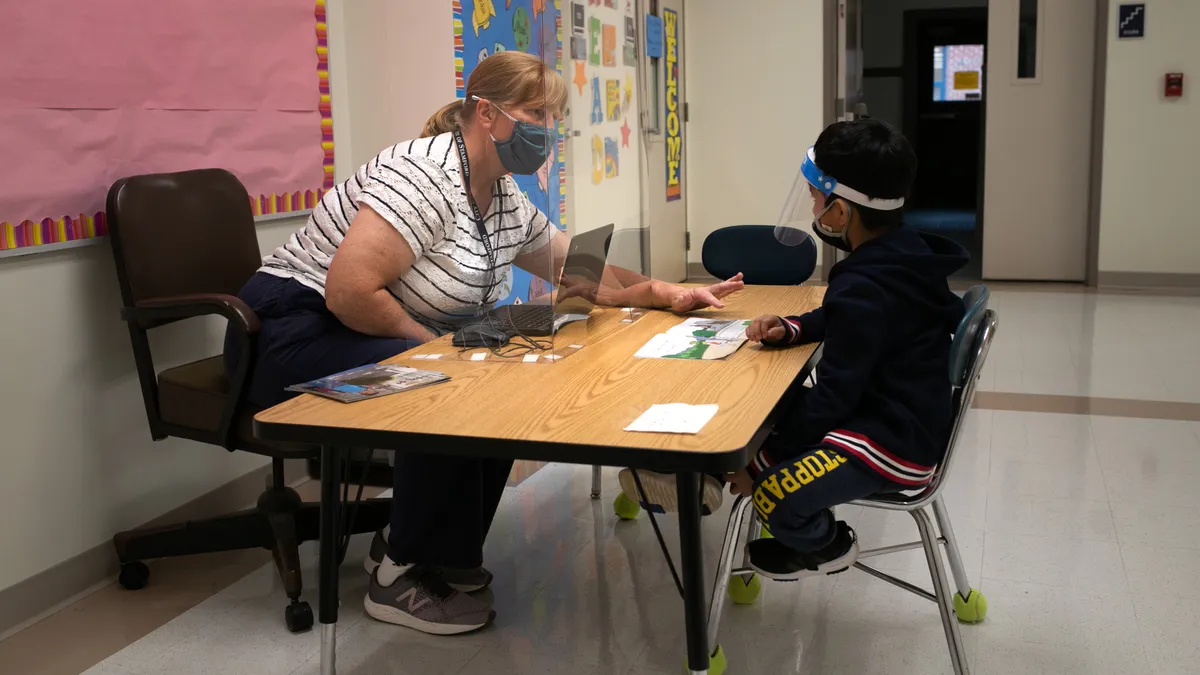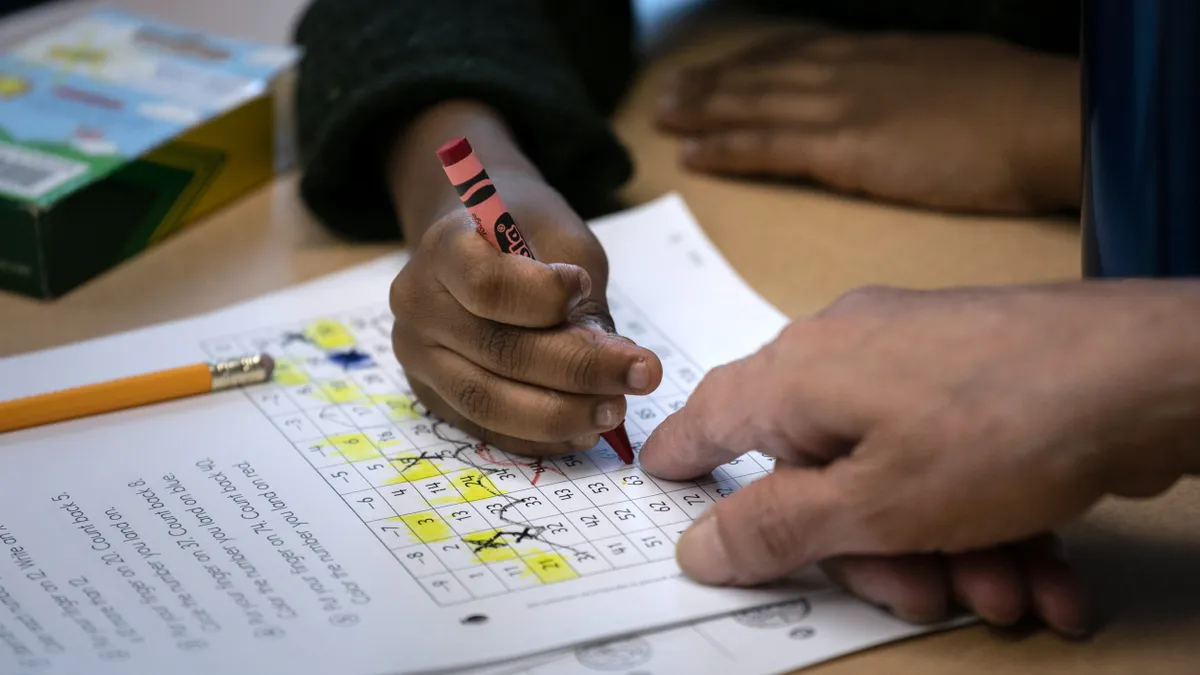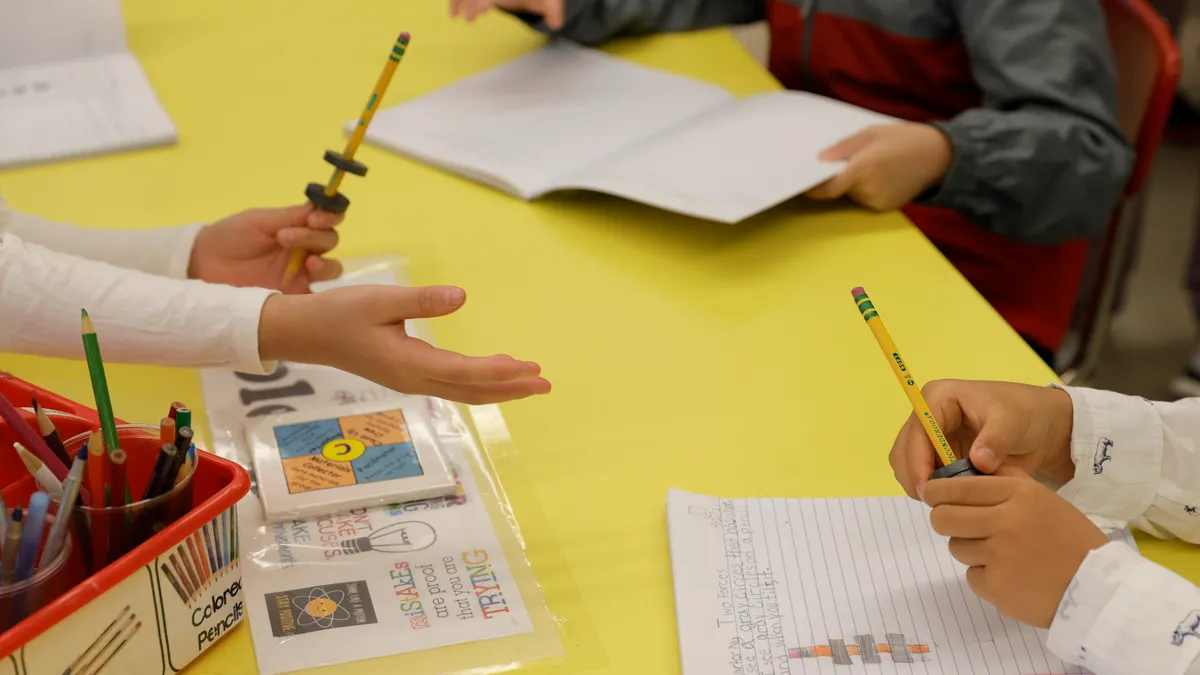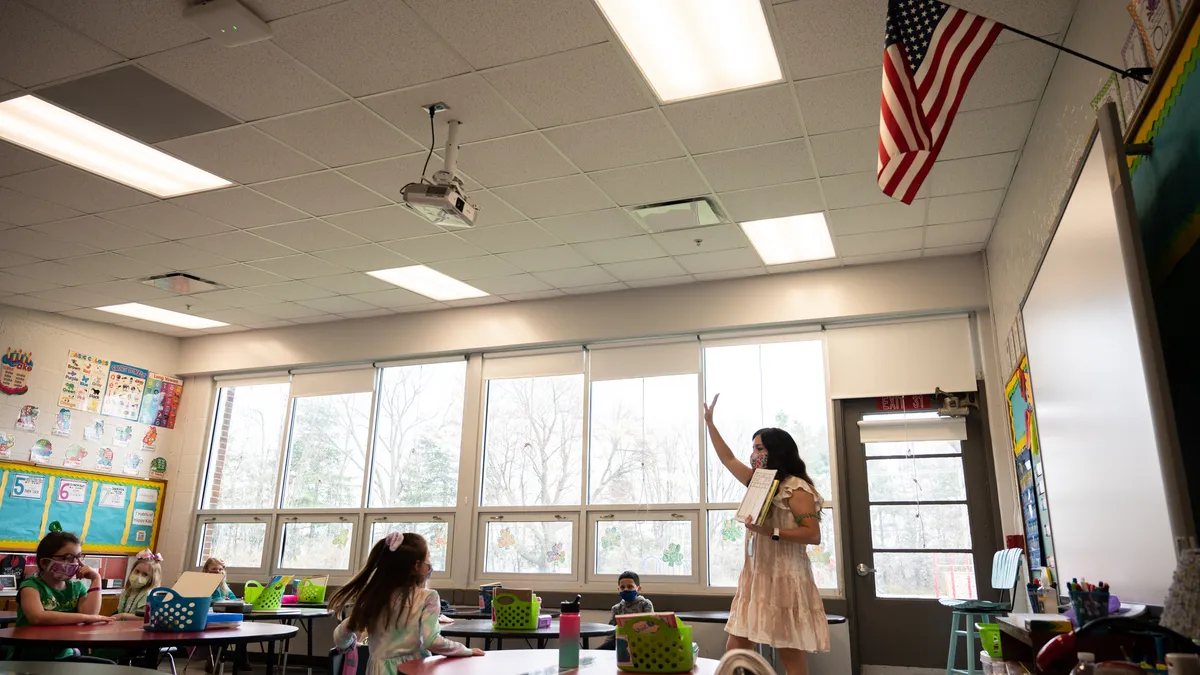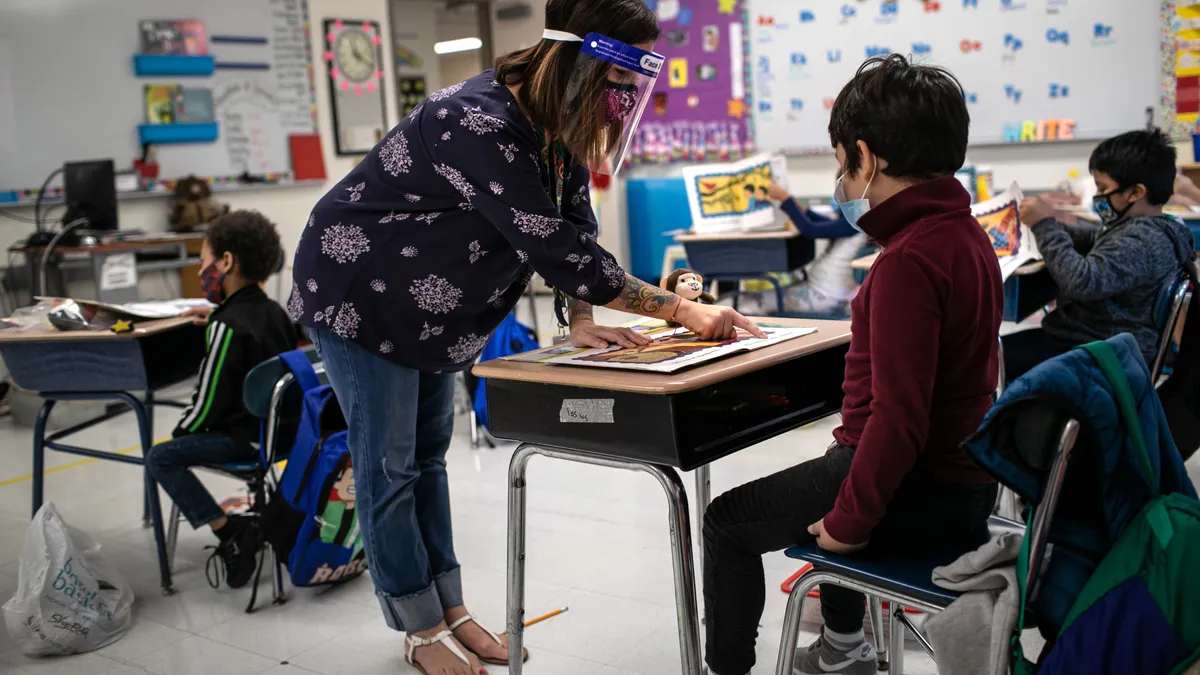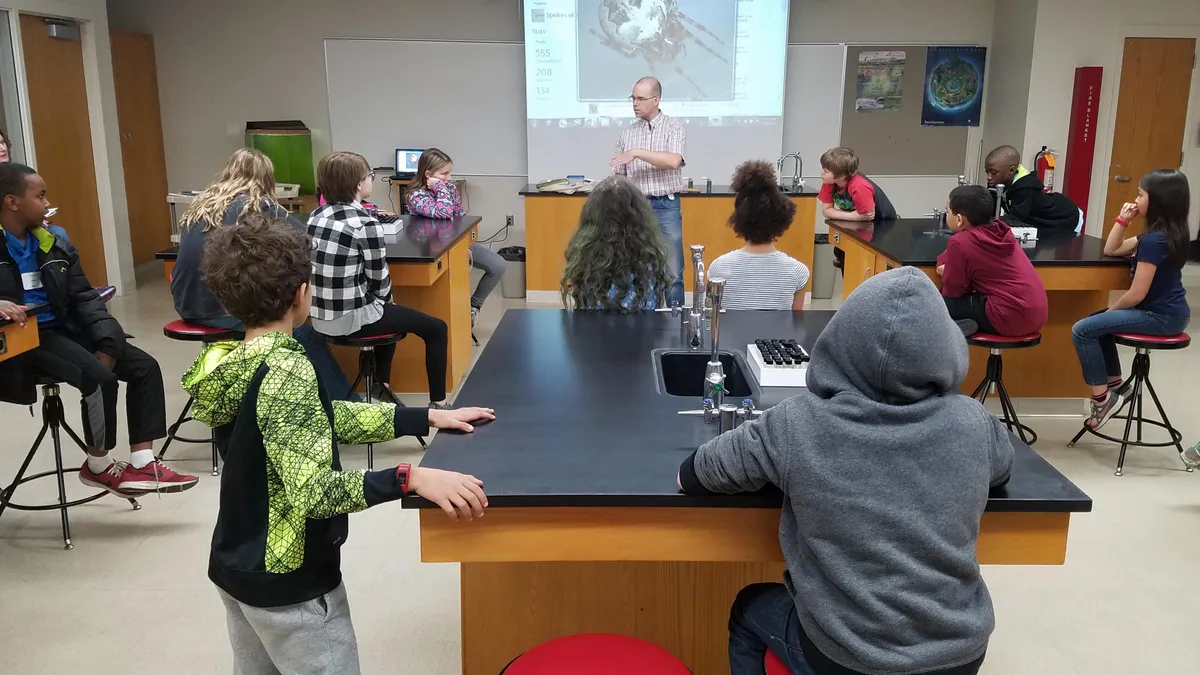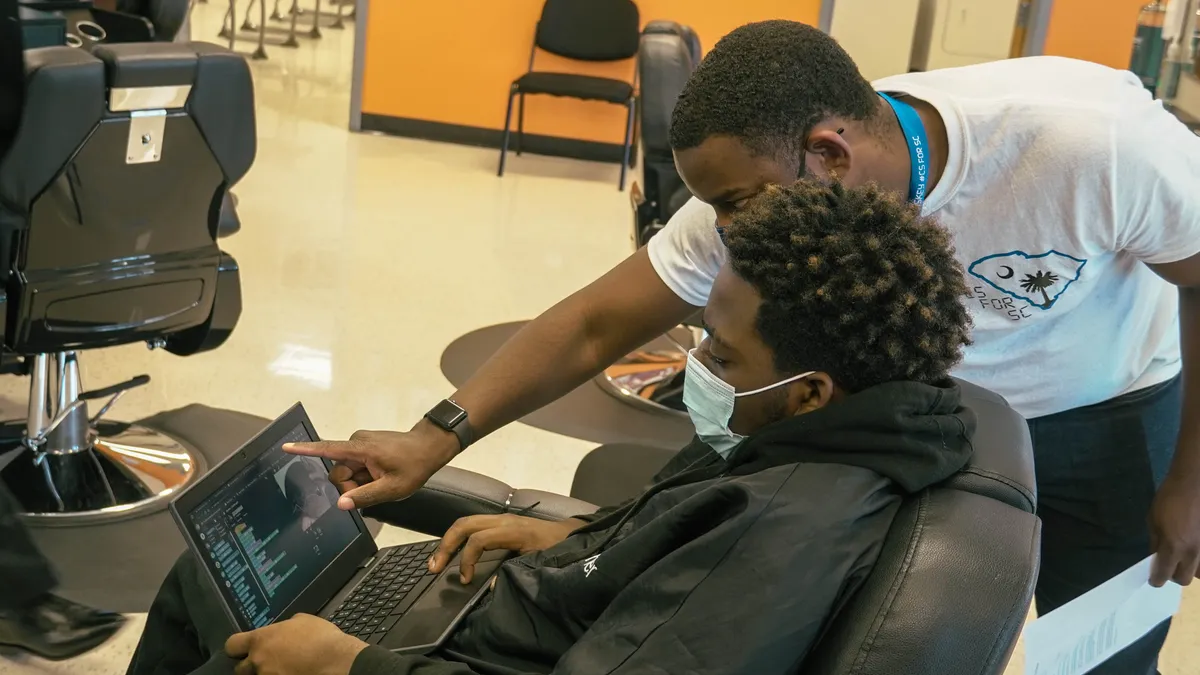Curriculum: Page 39
-
States report declines, stalled progress in 2020-21 test scores
At the district level, some saw an increase in test scores, suggesting lower participation rates — especially among lower-performing students.
By Naaz Modan • Jan. 27, 2022 -
Measuring results against expectations can improve classroom feedback
One school leader recommends adopting the military After-Action Review process to improve targeted feedback for educators and students.
By Lauren Barack • Jan. 26, 2022 -
Trendline
Social-Emotional Learning
Our latest K-12 Dive Trendline takes a closer look at how educators are addressing social-emotional learning amid pushback from policymakers and ongoing demand from employers.
By K-12 Dive staff -
3 areas to expand Black history curricular content
From the rich archives of the Black press to the history of Black-owned banks and contributions of Black engineers, opportunities abound.
By Lauren Barack • Jan. 26, 2022 -
The SAT will be delivered digitally in the U.S. starting in 2024
While the College Board is touting the simplicity and accessibility of the new version, skeptics don't think it will solve equity issues related to the exam.
By Jeremy Bauer-Wolf • Jan. 25, 2022 -
Survey: 37% of teachers will likely quit if K-12 censorship laws reach them
Overall, nearly three in 10 teachers said it's very likely or likely they will quit teaching this year, according to data from nonprofit Stand for Children.
By Anna Merod • Jan. 24, 2022 -
Report: Colorado reading law update boosts quality of literacy curriculum
A Fordham Institute analysis suggests changes led to the use of more state-approved literacy material and adjustments to teacher prep programs.
By Lauren Barack • Jan. 19, 2022 -
5 principals to watch in 2022
These school leaders are rising to the occasion on inclusive and equitable education, strong and consistent communication, school culture and more.
By Roger Riddell • Jan. 18, 2022 -
Study: Analyzing historical data can promote problem solving in social studies
Research based on a private high school's project-based class found students developed computational thinking during structured data analysis.
By Shawna De La Rosa • Jan. 12, 2022 -
Rigorous curriculum doesn't need to be overwhelming
Educators can ease students back into a more intensive academic environment by linking learning to personal and real-world interests.
By Lauren Barack • Jan. 12, 2022 -
Schools expand credit recovery to keep students on track for graduation
Personalizing and growing credit recovery options are among popular nontraditional approaches districts have supported with relief funding.
By Kara Arundel • Jan. 12, 2022 -
5 superintendents to watch in 2022
These administrators' track records and outlooks toward top issues facing K-12 and the challenges ahead make them key players to keep an eye on.
By Roger Riddell • Jan. 10, 2022 -
Opinion
3 inclusive education myths busted
A district assistive technology specialist writes that removing barriers for diverse students requires overcoming pervasive narratives in learning.
By Jamie Maier • Jan. 6, 2022 -
Focusing on problem-solving in math improves understanding
One expert suggests breaking topics into actionable steps to boost students' confidence amid pandemic setbacks.
By Shawna De La Rosa • Jan. 5, 2022 -
3 ways district leaders are adapting pandemic learning experiences
From new grading systems to an increased focus on flexibility, superintendents are shifting virtual learning tools and approaches for in-person use.
By Lauren Barack • Jan. 5, 2022 -
8 K-12 trends to watch in 2022
Fallout from the COVID-19 pandemic, ongoing policy pingpong, curricular controversy and more are set to impact schools this year.
By Roger Riddell , Kara Arundel , Naaz Modan , Anna Merod • Jan. 4, 2022 -
LESSONS IN LEADERSHIP
Lessons In Leadership: 6 key takeaways from a year of school leader conversations
In case you missed any of this year's installments, we've highlighted some of the best insights on teacher retention, student engagement and more.
By Roger Riddell • Jan. 3, 2022 -
3 strategies can help students strengthen self-motivation
Providing student choice and opportunities for small "wins" along the way to a goal can be critical factors for engaging students in learning.
By Lauren Barack • Dec. 22, 2021 -

 Bjork, Marten. Retrieved from Unsplash.
Bjork, Marten. Retrieved from Unsplash.
Schools encouraged to help students have positive social media experiences
Focus is growing on digital citizenship following social media-influenced threats of violence and acts of school destruction.
By Kara Arundel • Dec. 22, 2021 -
As learning lags for second year, how long will it take to bounce back?
Data suggests achievement gaps have widened by about a third as learning continues to slow for the lowest-performing students.
By Naaz Modan • Dec. 22, 2021 -
K-12 to career pathways data can inform practices for current students
Analyzing outcomes data of former students can improve future postsecondary transitions, but the data isn't always easy to find.
By Kara Arundel • Dec. 15, 2021 -
What lessons can schools learn from national parks?
Adopting audience-centered strategies used by park rangers during tours can help educators shift to student-centered learning models.
By Lauren Barack • Dec. 15, 2021 -
How Disney's magic can inspire students in STEAM
From the physics behind a roller coaster to the engineering in a light projection show, Disney parks offer a variety of STEAM lessons on- and offsite.
By Lauren Barack • Dec. 8, 2021 -
Helping students develop voice equips them with lifelong self-advocacy skills
Educators can employ a variety of strategies to help learners express their needs and share ideas as early as kindergarten.
By Lauren Barack • Dec. 8, 2021 -
Coding and barbering event aims to broaden Black student participation in computer science
Students in South Carolina are learning a unique approach to barbering by coding hair designs in their barbershop class.
By Anna Merod • Dec. 8, 2021 -
Ed Dept announces communities of practice to accelerate learning, support kindergarteners
The collaborations are designed to push proven practices forward to facilitate student achievement.
By Kara Arundel • Dec. 3, 2021


